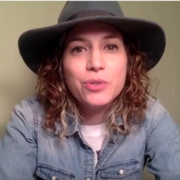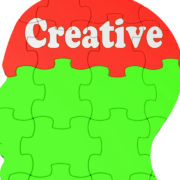Why I Rarely Ask Why

As many of you may already know, recently I had major surgery on the tail-end of nearly a year’s worth of painful symptoms no one could adequately diagnose. It all culminated in an emergency room visit after an excruciating rupture of a uterine cyst and the removal of that cyst, an ovary and a Fallopian tube. Not the outcome one expects or wants!
When things aren’t going our way it’s common to question why.
Why did this happen to me?
Depending on your situation, perhaps you’ve asked yourself:
Why did I say, or not say, that?
Why did he/she behave that way?
Why didn’t I get that job or promotion?
And on, and on, and on.
The potential pitfall of asking ‘why’ inquiries is getting, and staying, stuck in a problematic state. ‘Why’ doesn’t always allow you a way out, or a means to search for a solution. Even worse, often times, ‘whys’ trap you in a depressive or self-deprecating internal funk.
So how do you get unstuck, or escape, the insidious slump?
Exactly, ‘how!’
Start asking ‘how’ or ‘what’ questions. For instance, when I got sick I didn’t ask “why did this happen to me?” Instead I asked, “OK, so what’s the next step to take now knowing this?”
Piggybacking on the aforementioned ‘why’ questions, you can consider reframing these questions accordingly:
How can I prevent this from happening again?
What can I say differently next time?
What could be the possible reasons for her/him to react that way?
How can I communicate my skill set more effectively to potential employers?
Notice how reformulating these questions creates a rapid mindset shift and positive internal state. This isn’t to say you can’t, or shouldn’t, feel upset or frustrated. This is simply a means to feel what you feel while also allowing a greater perspective.
The second set of questions has the capability of removing personal or interpersonal judgements and starting the decision-making process. These questions allow a quicker release of emotional charges or triggers. They cause you to take action–not fruitlessly fester.
And, of course, not all ‘why’ questions are ill-advised or disempowering, but they do have a greater possibility of creating a slippery slope. To ensure you steer clear of unhelpful thought, you might consider implementing ‘how’ or ‘what.’ I’m curious to know how much better you’ll feel when you do.

[/av_textblock]








It’s all about perspective, like you mentioned. Great piece. Something I needed right now!
I’m glad it resonates with you. It’s definitely something easy to forget as our brains have a ‘negativity bias.’ Our brains are wired to more strongly receive that type of stimuli.